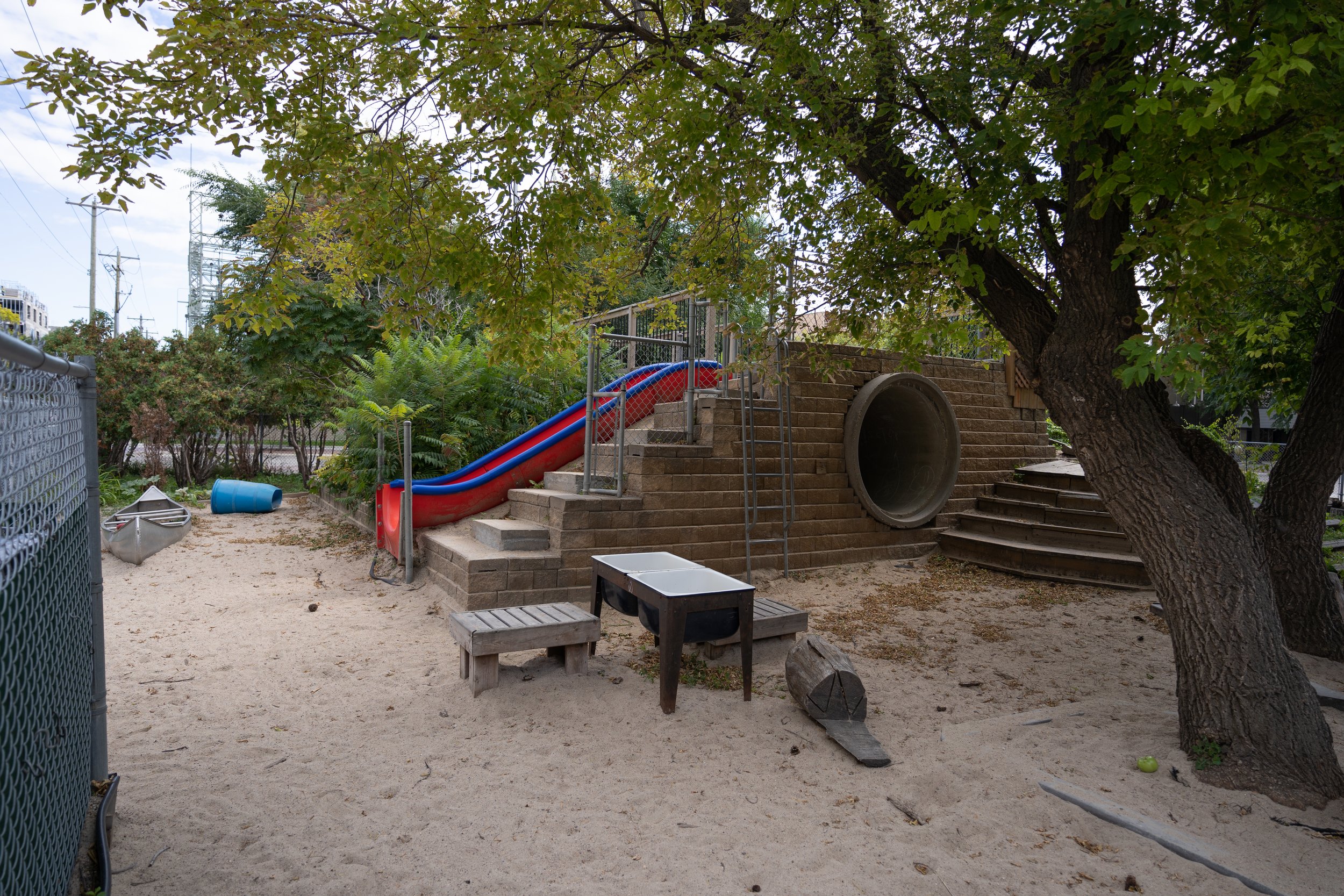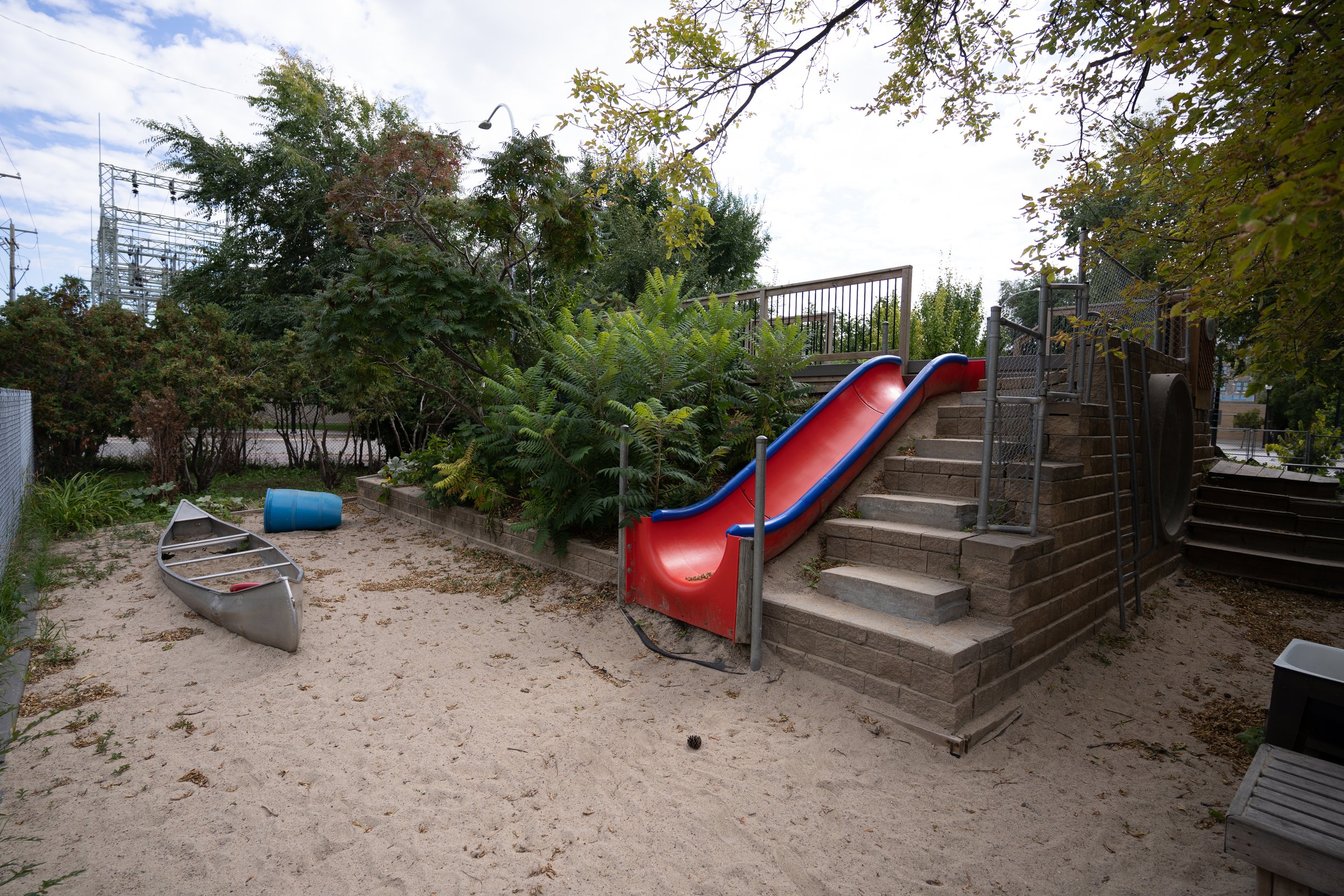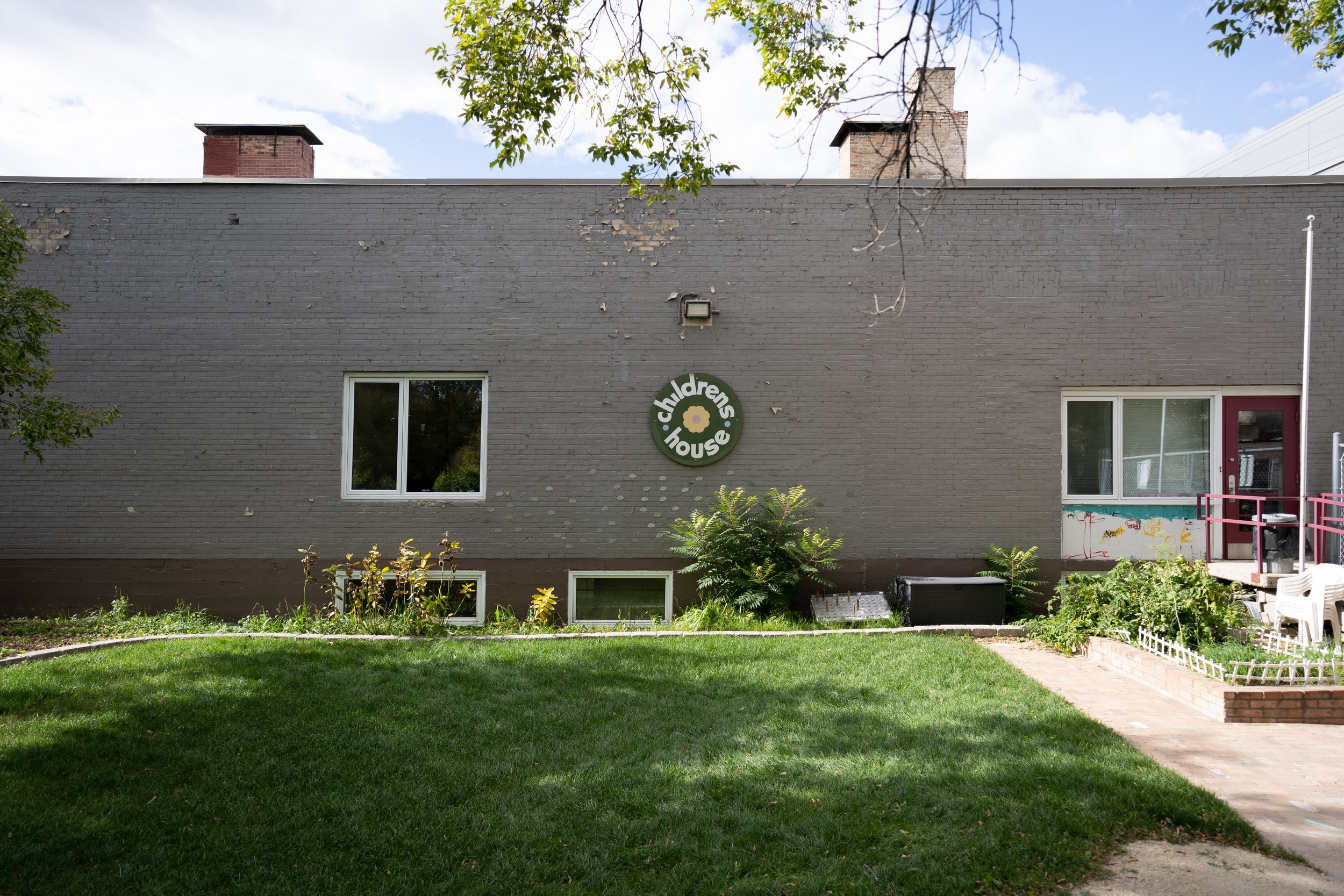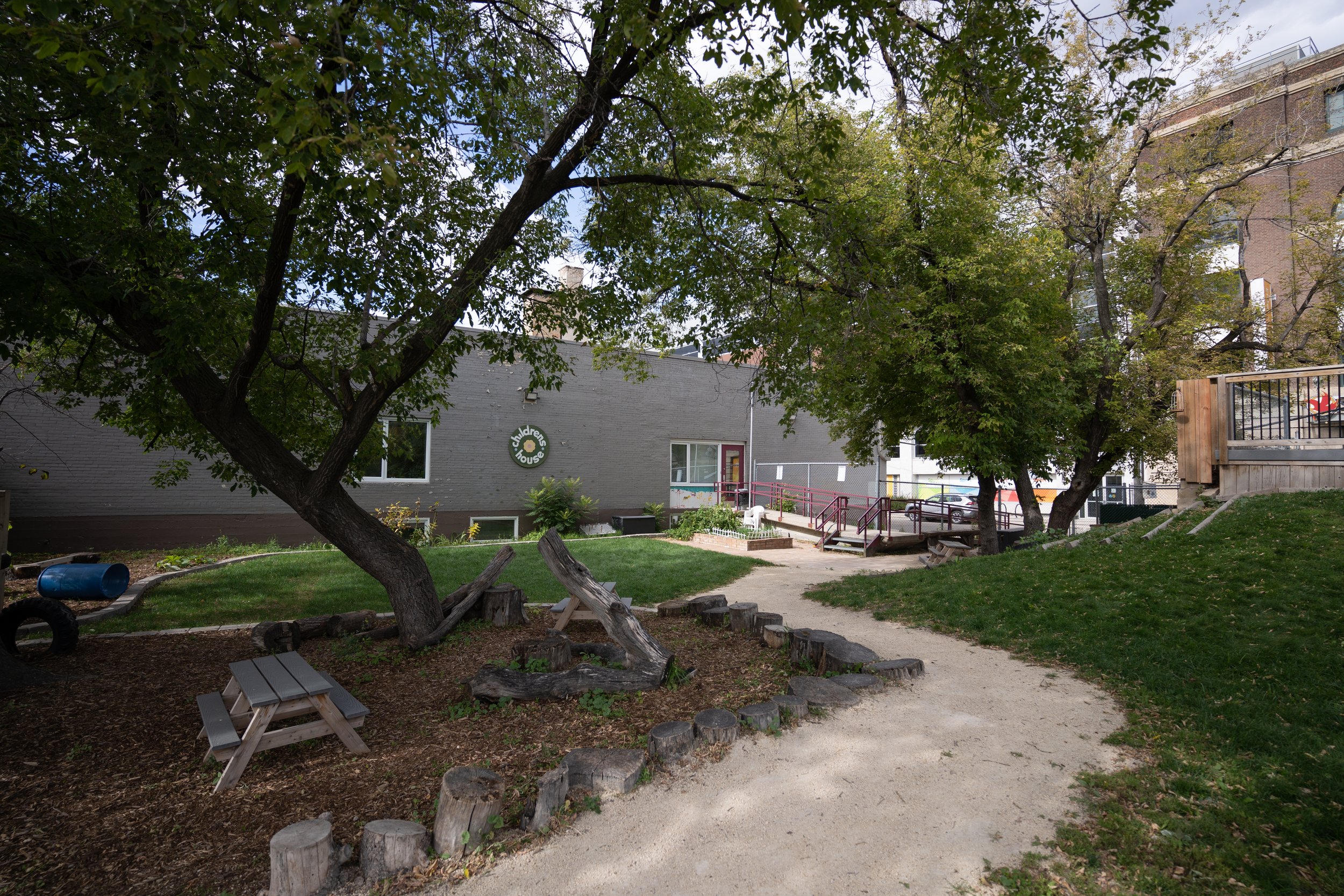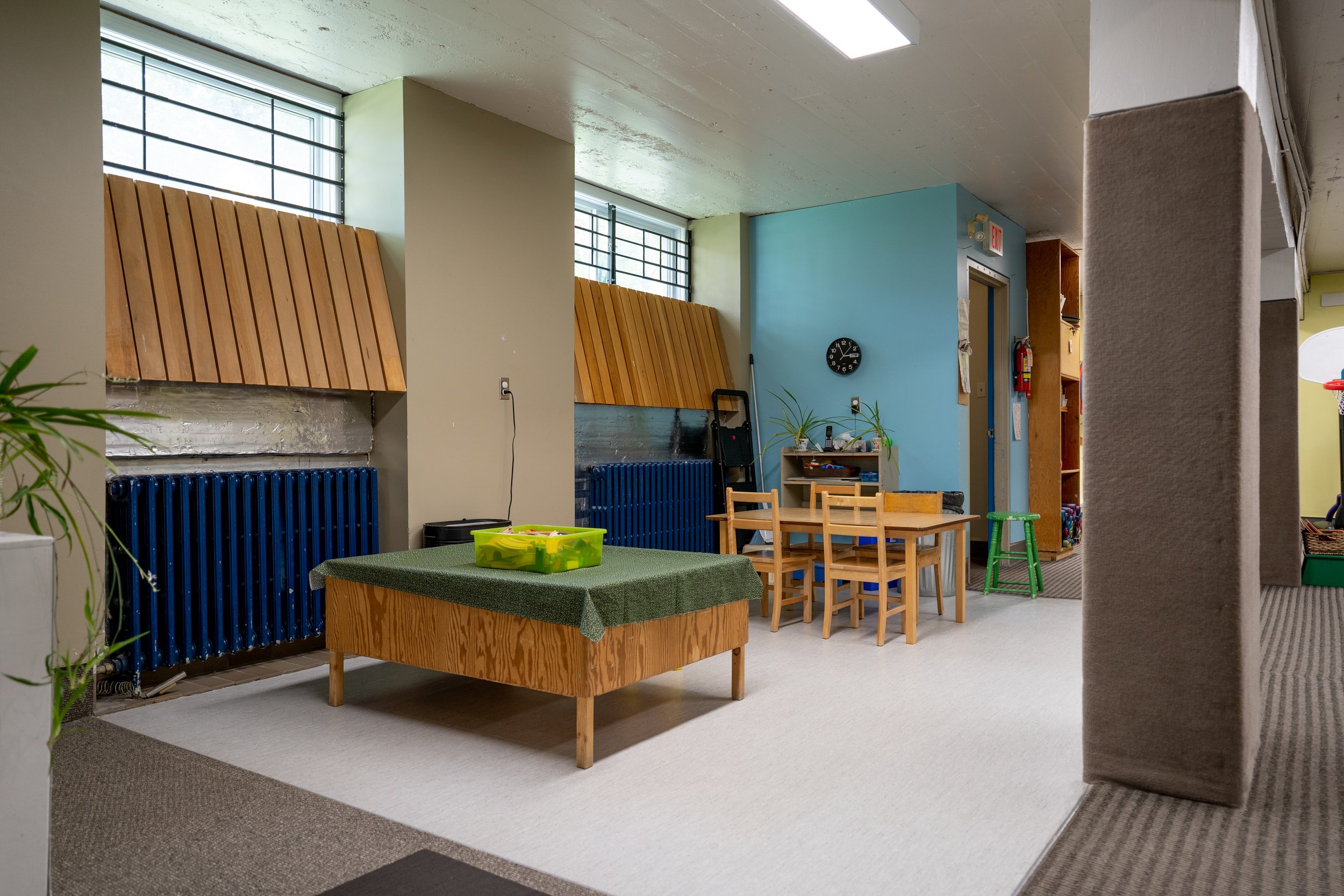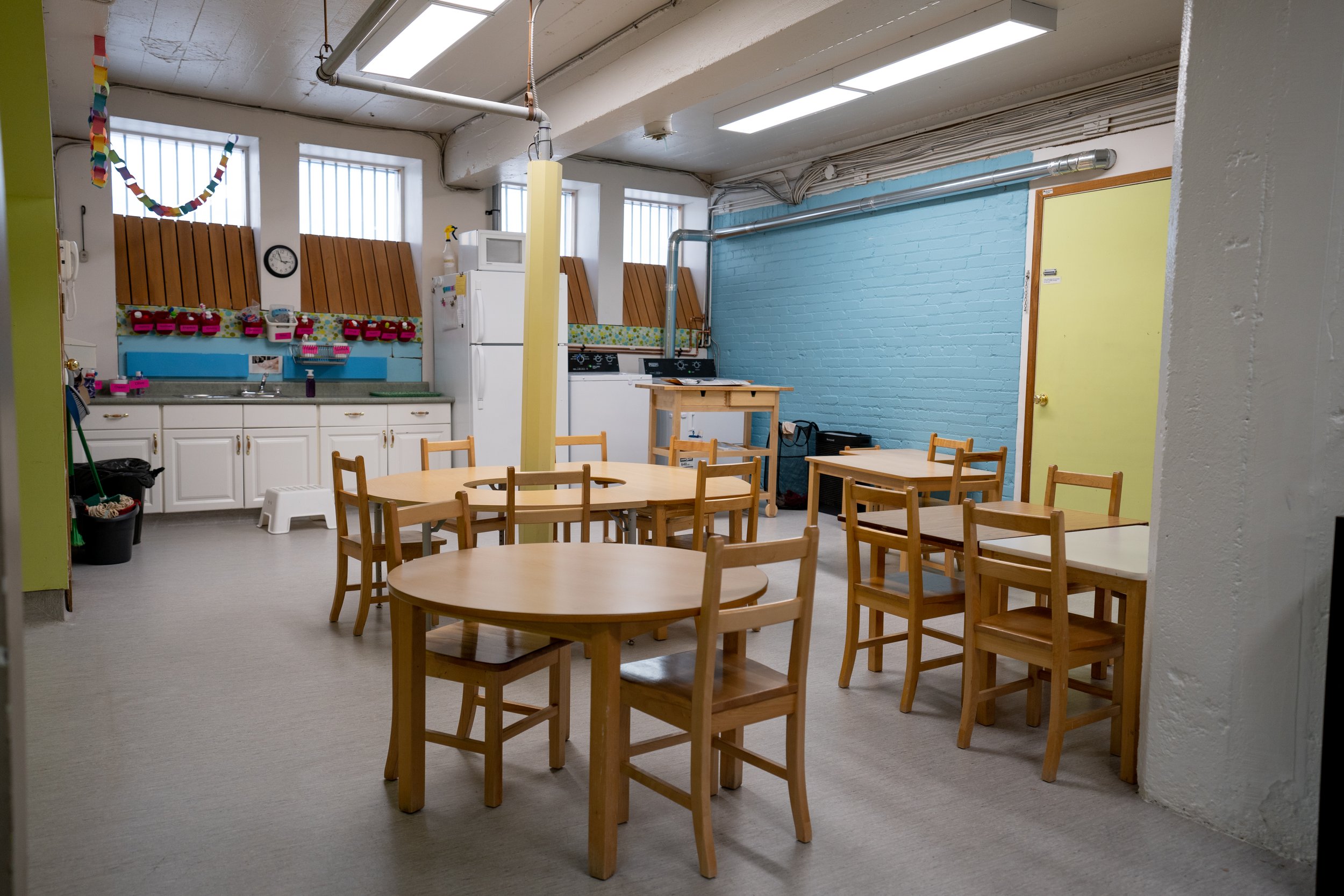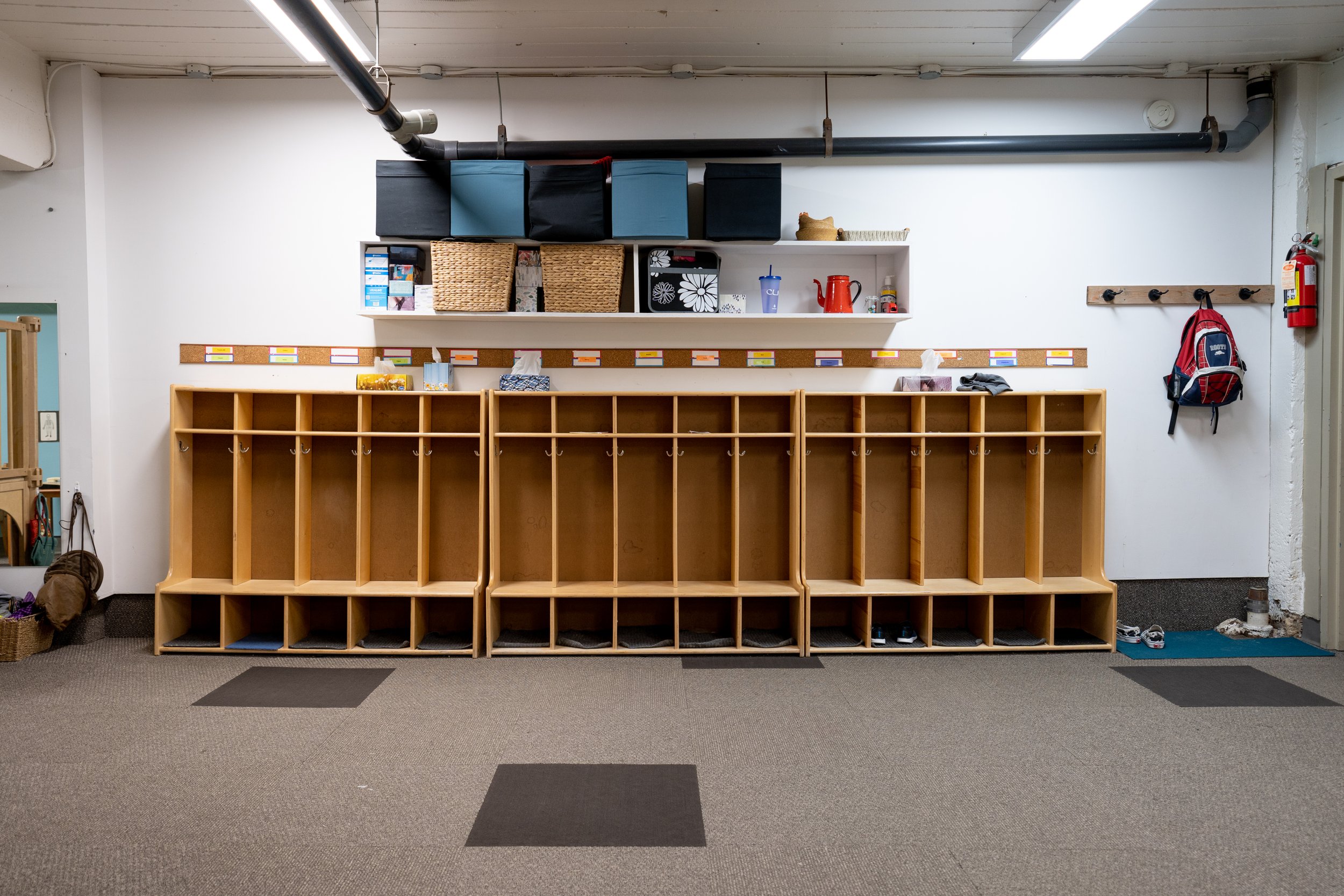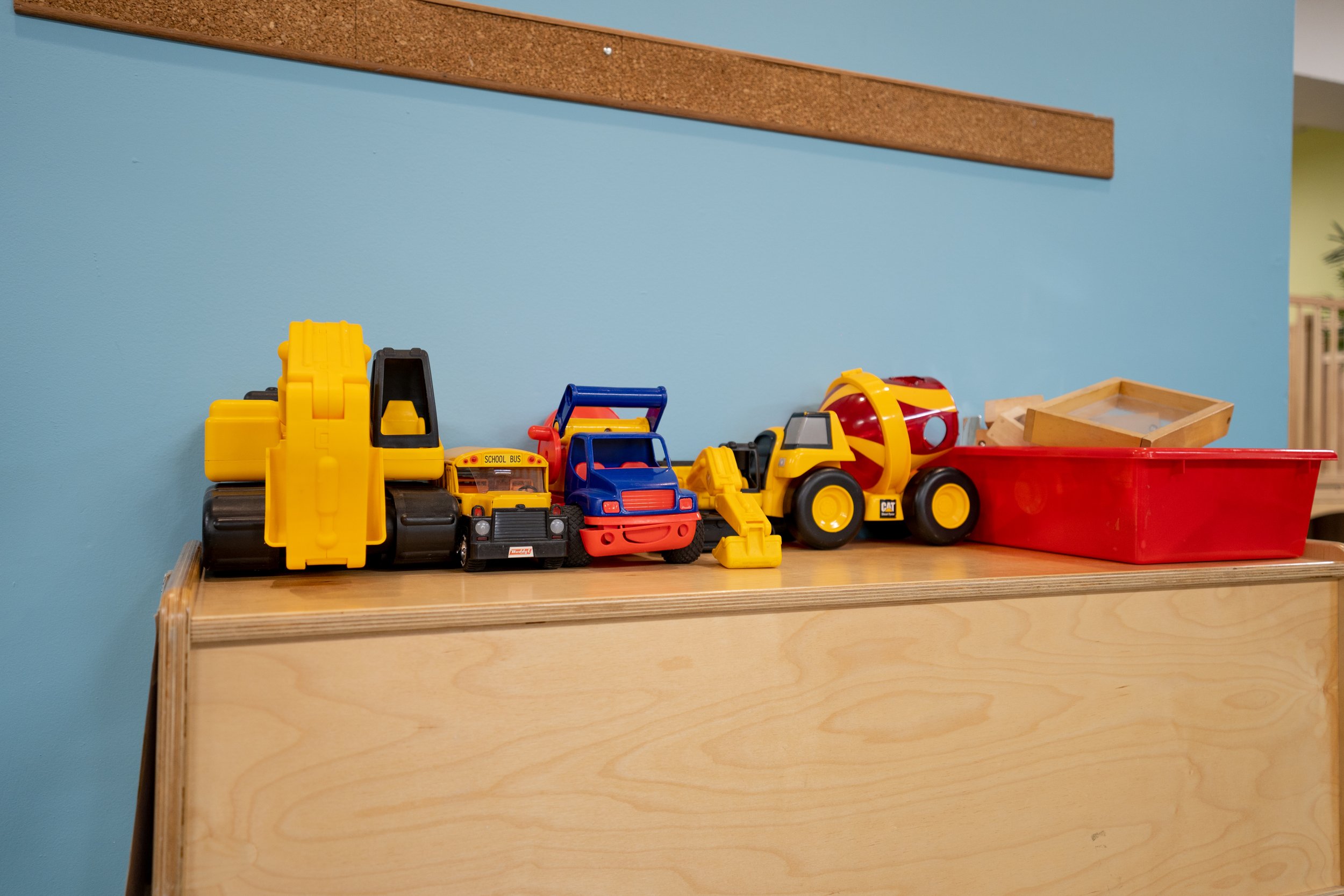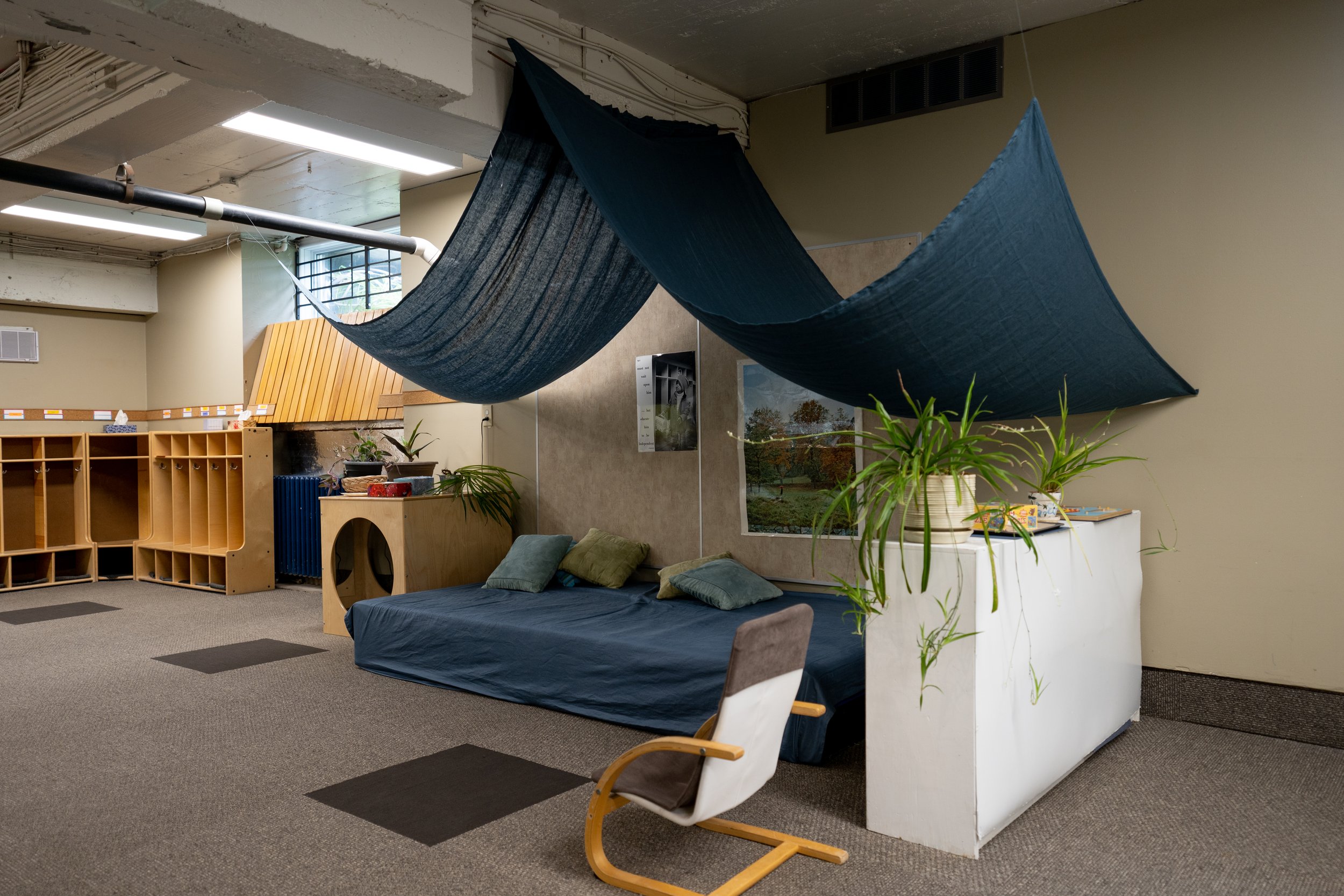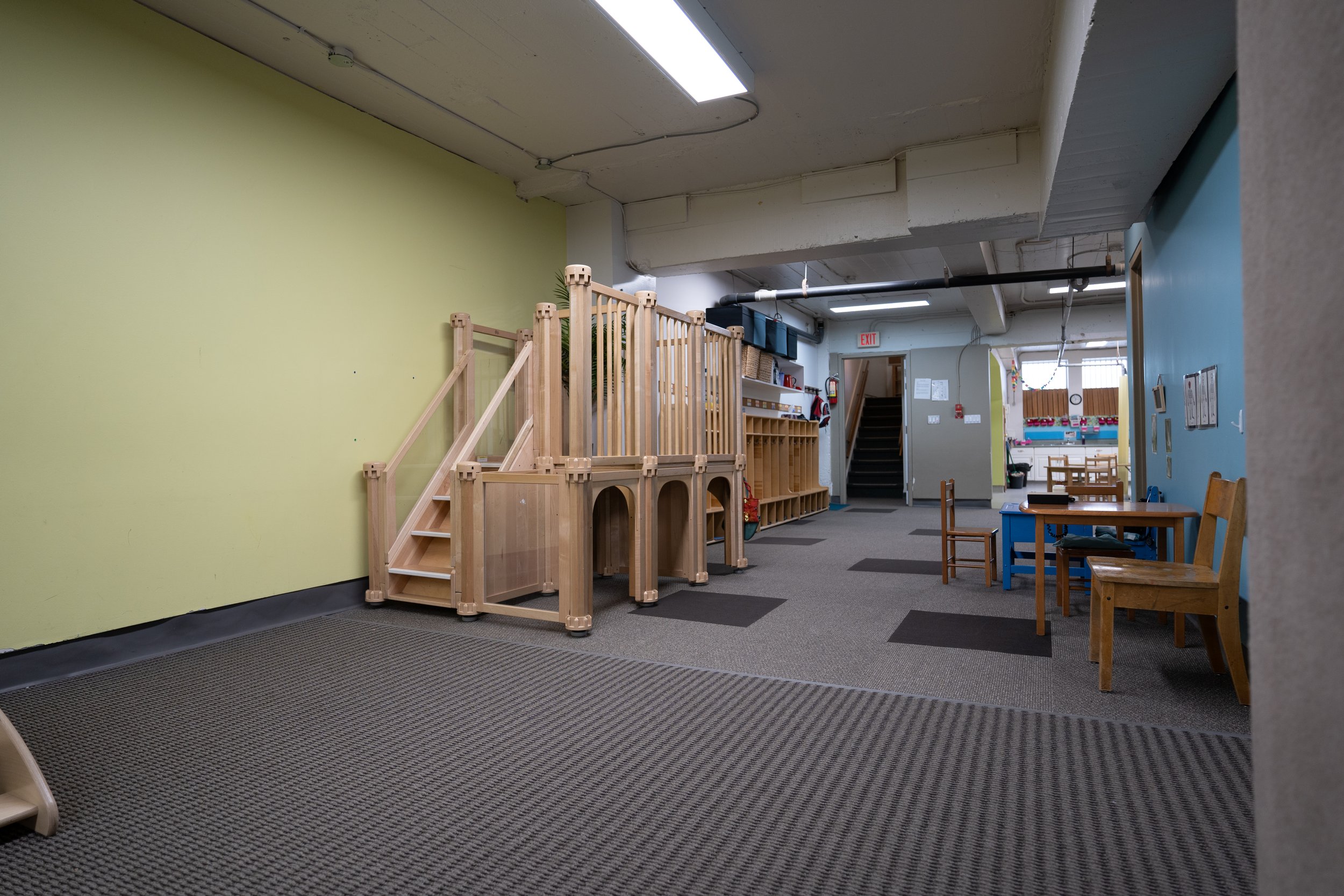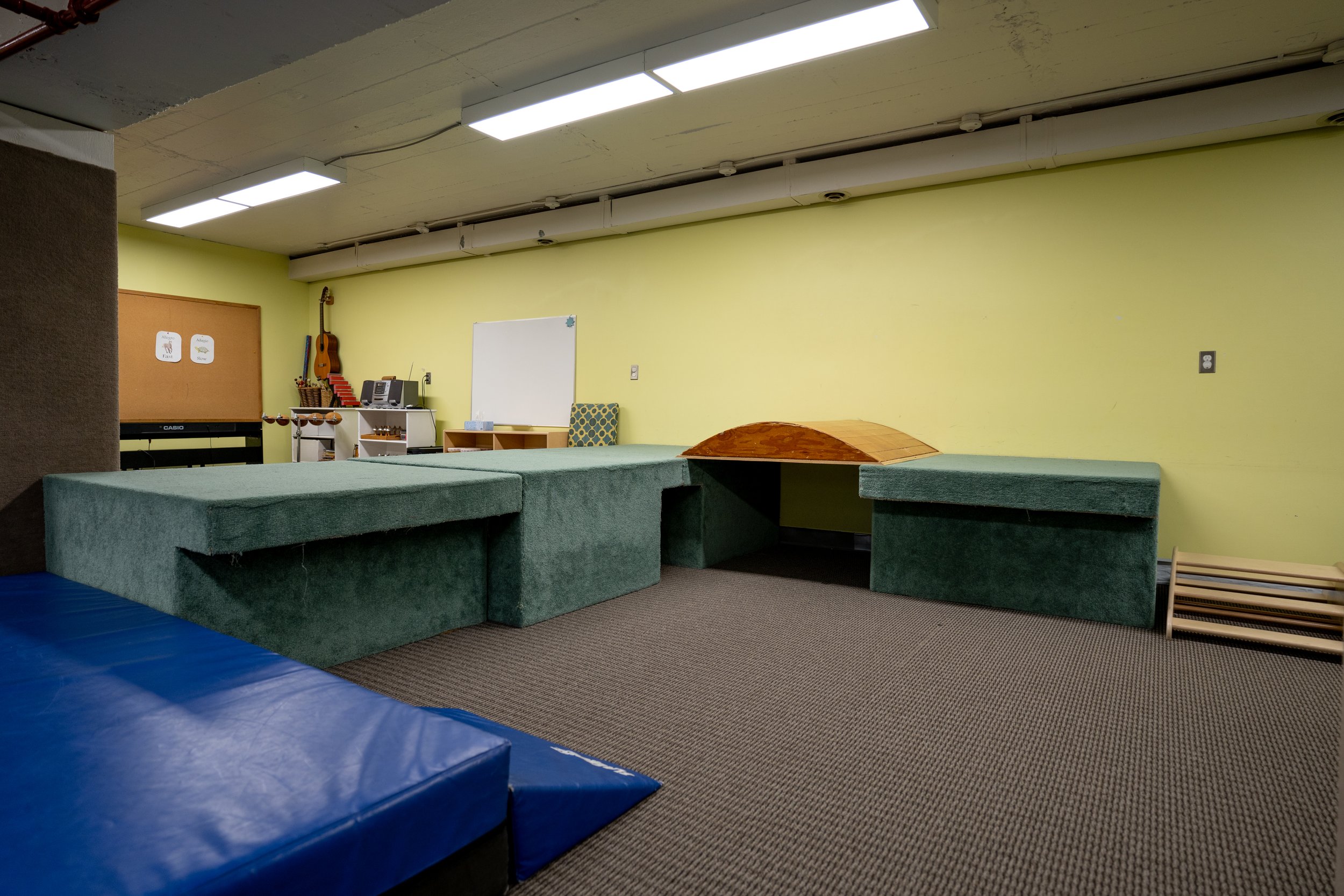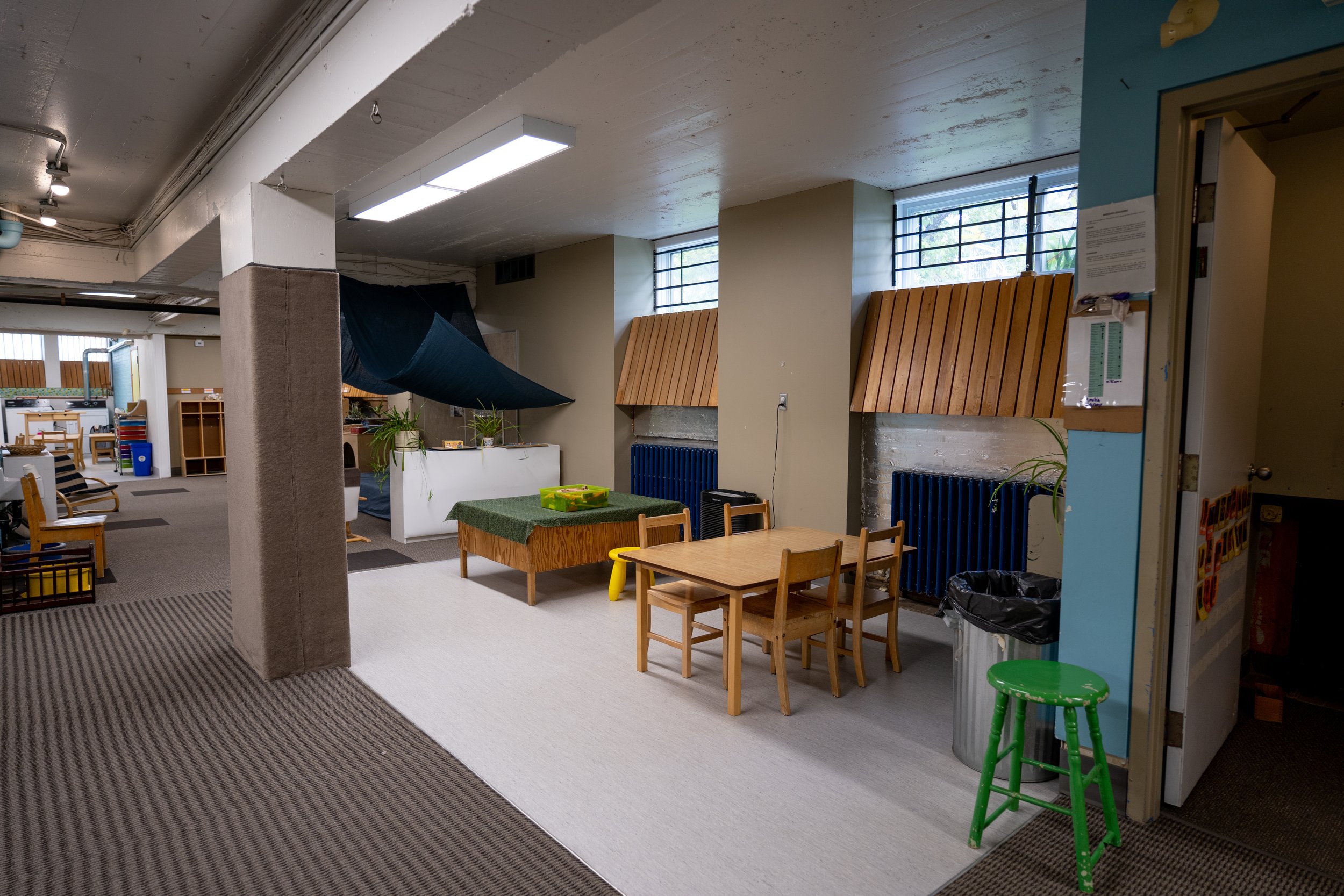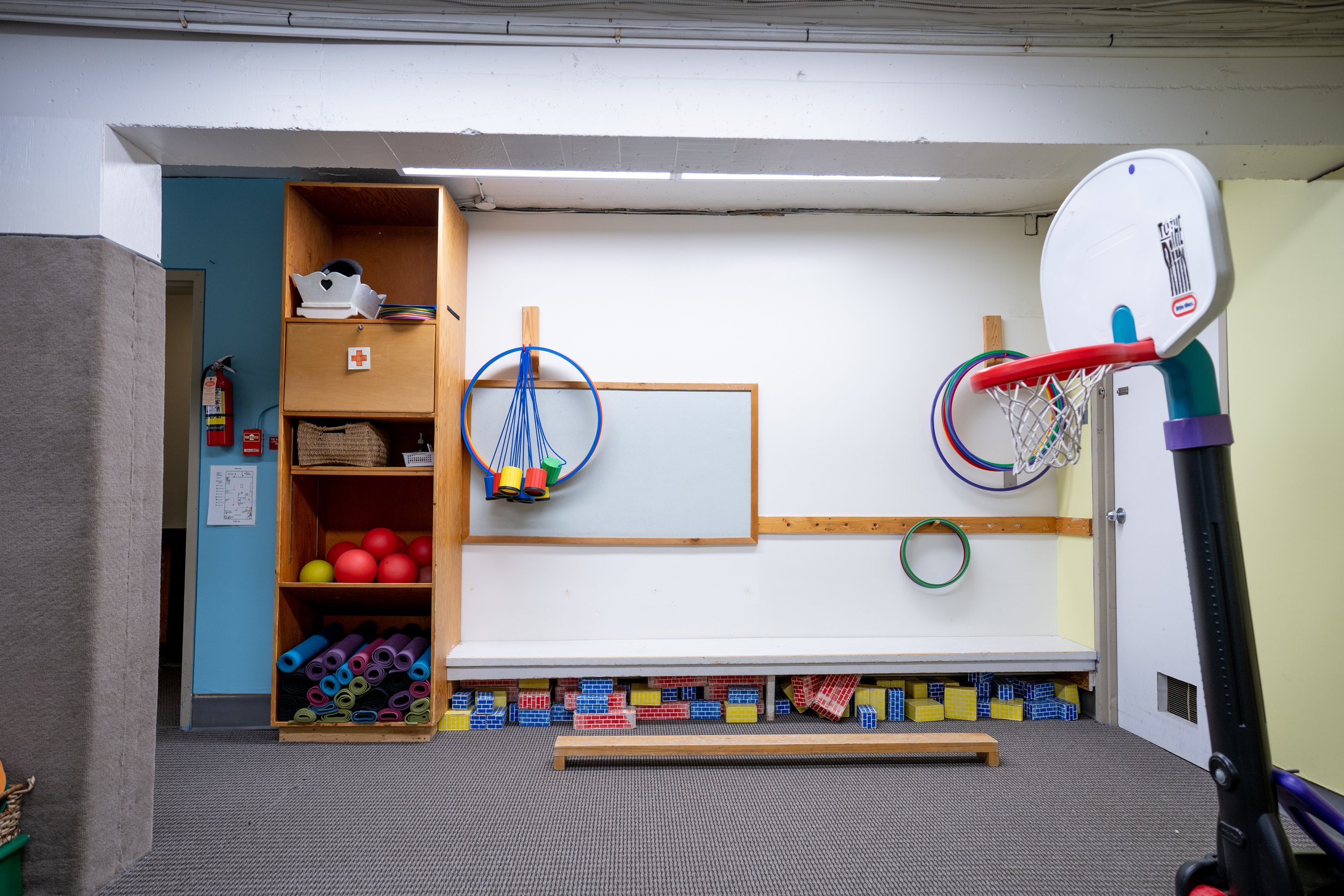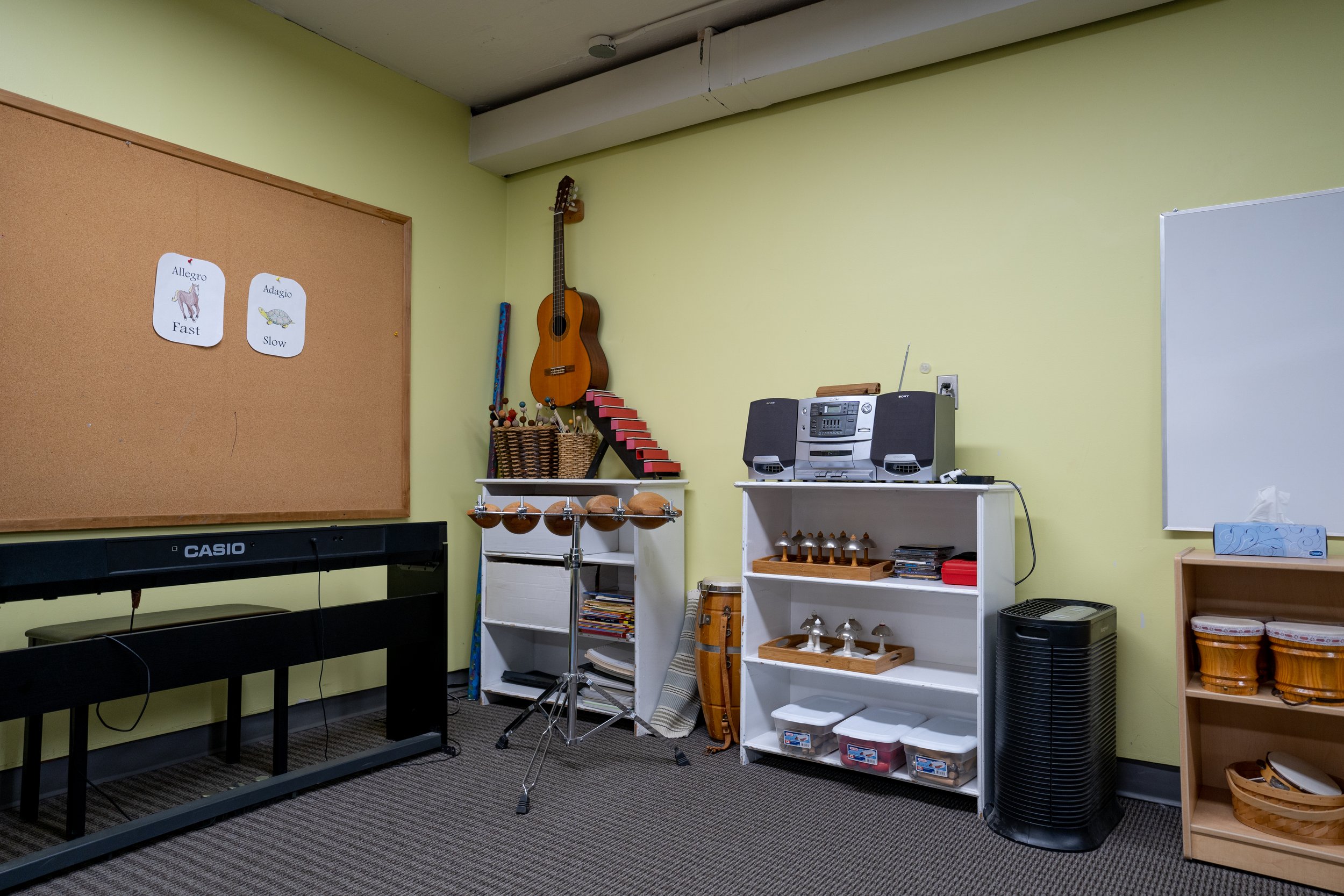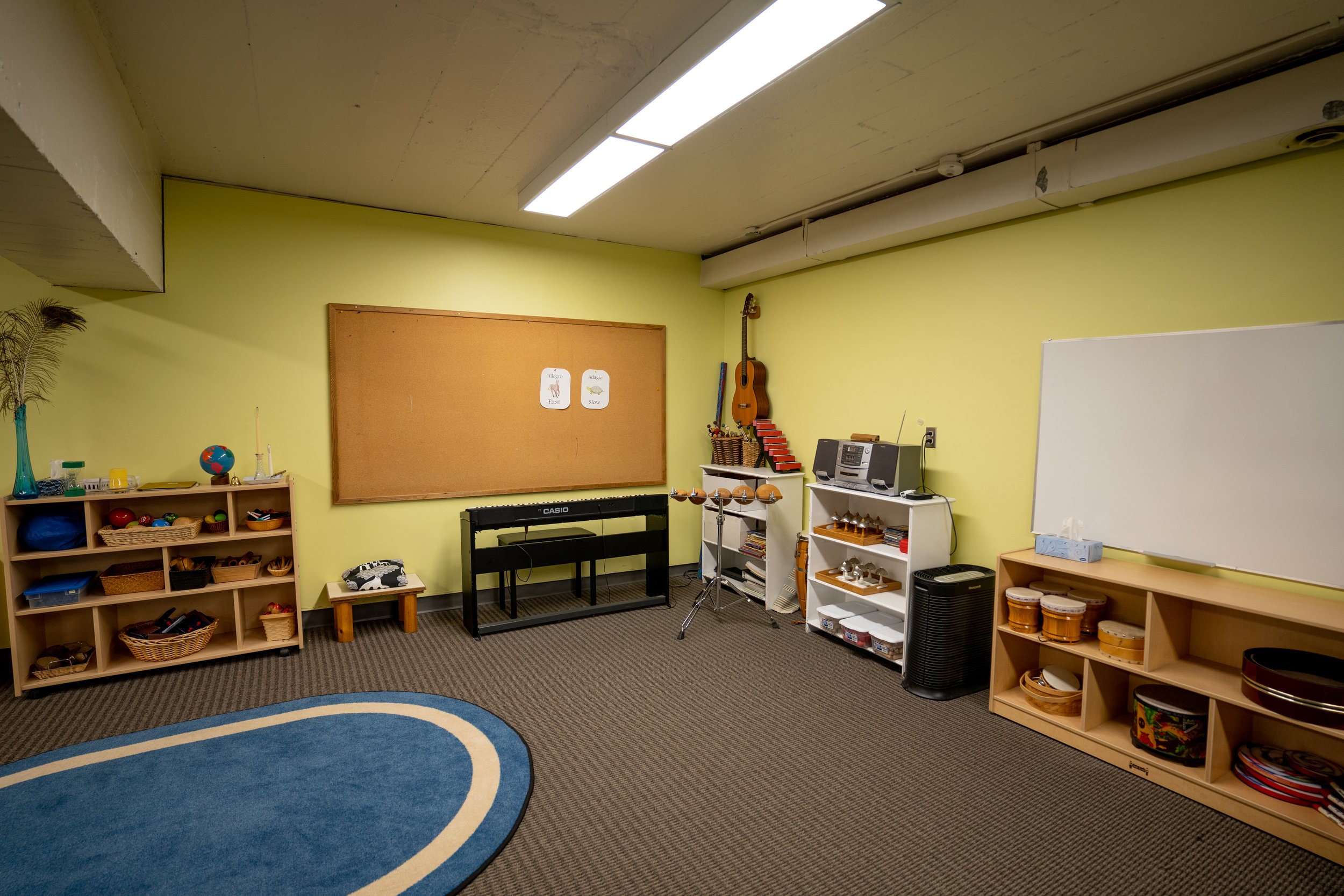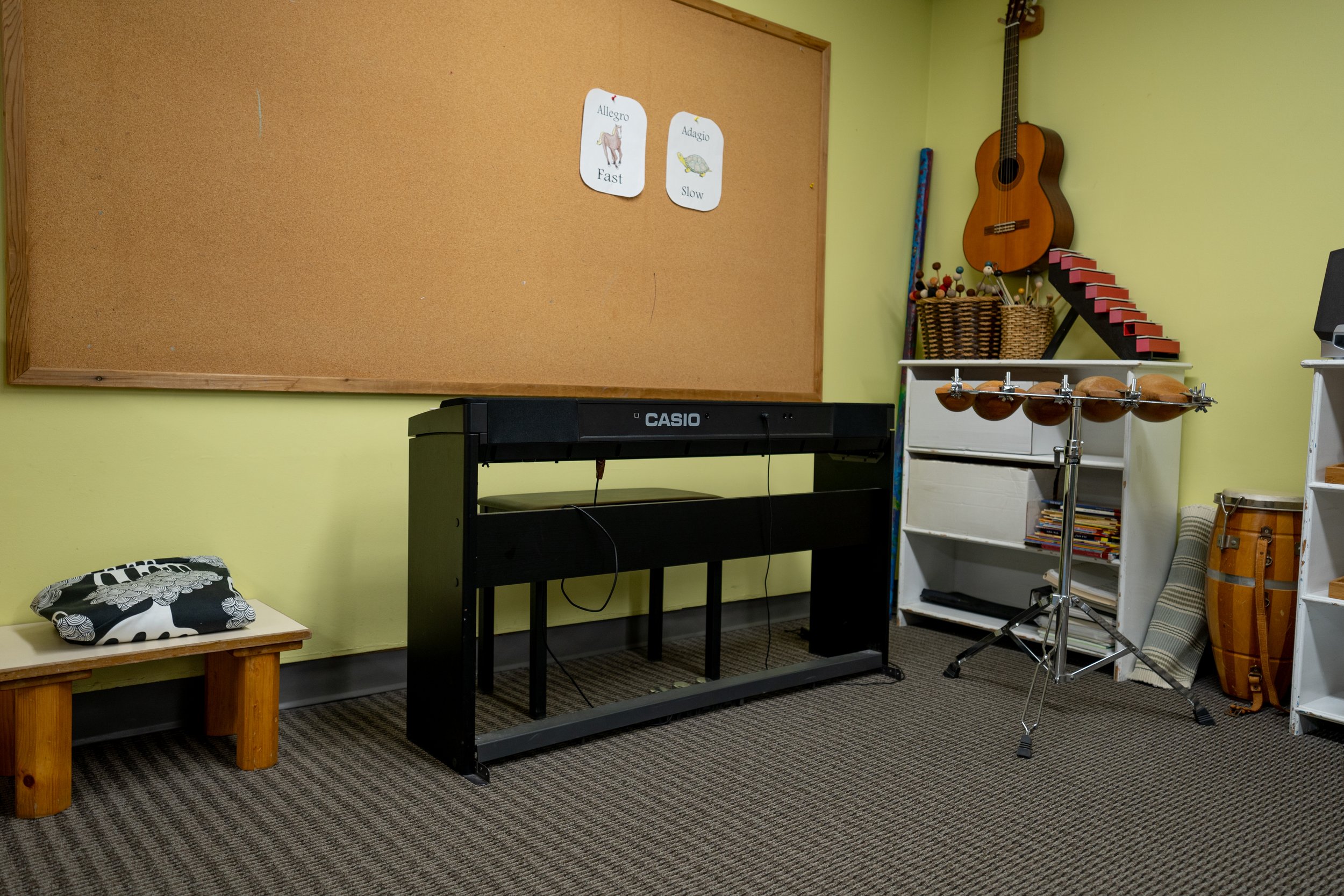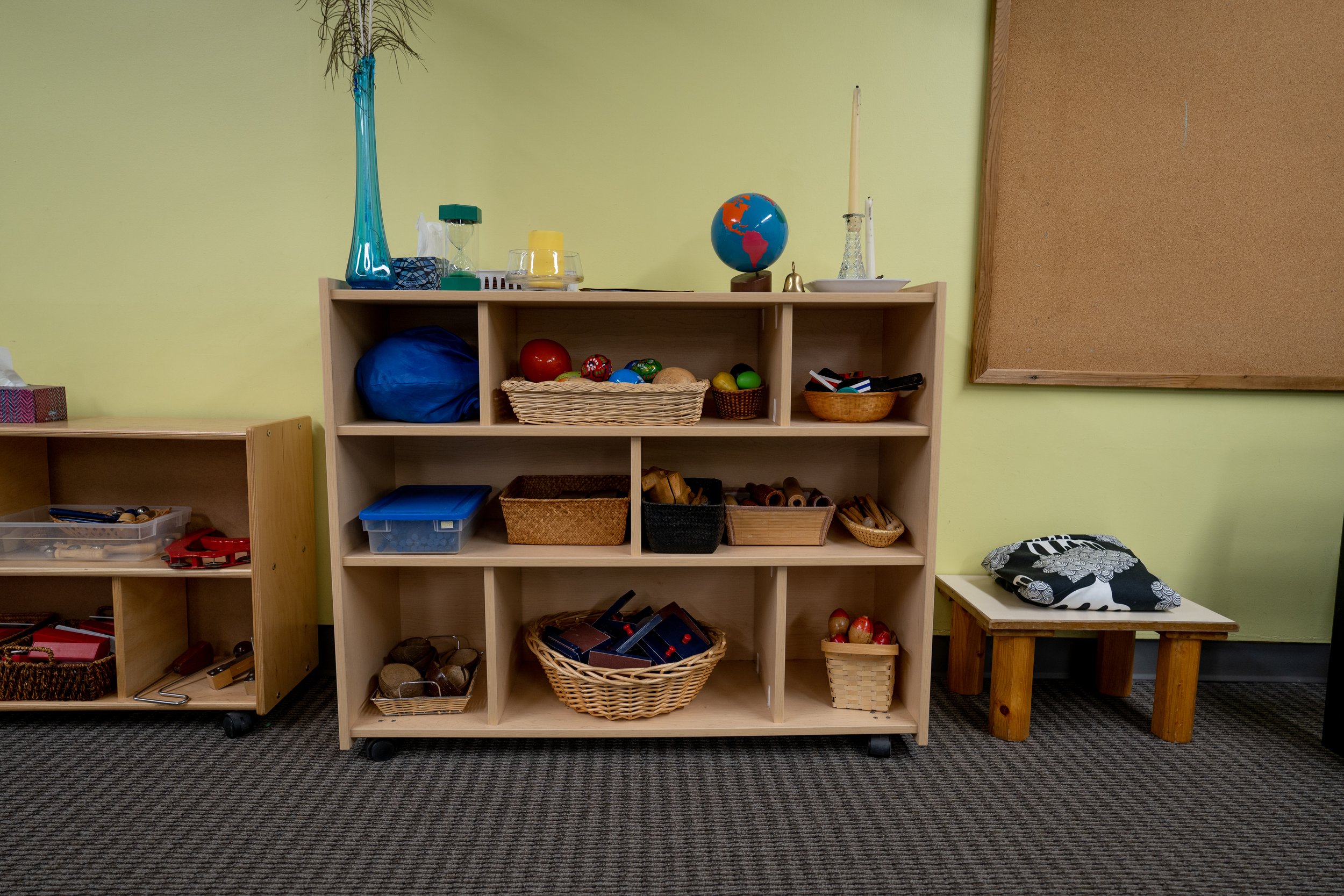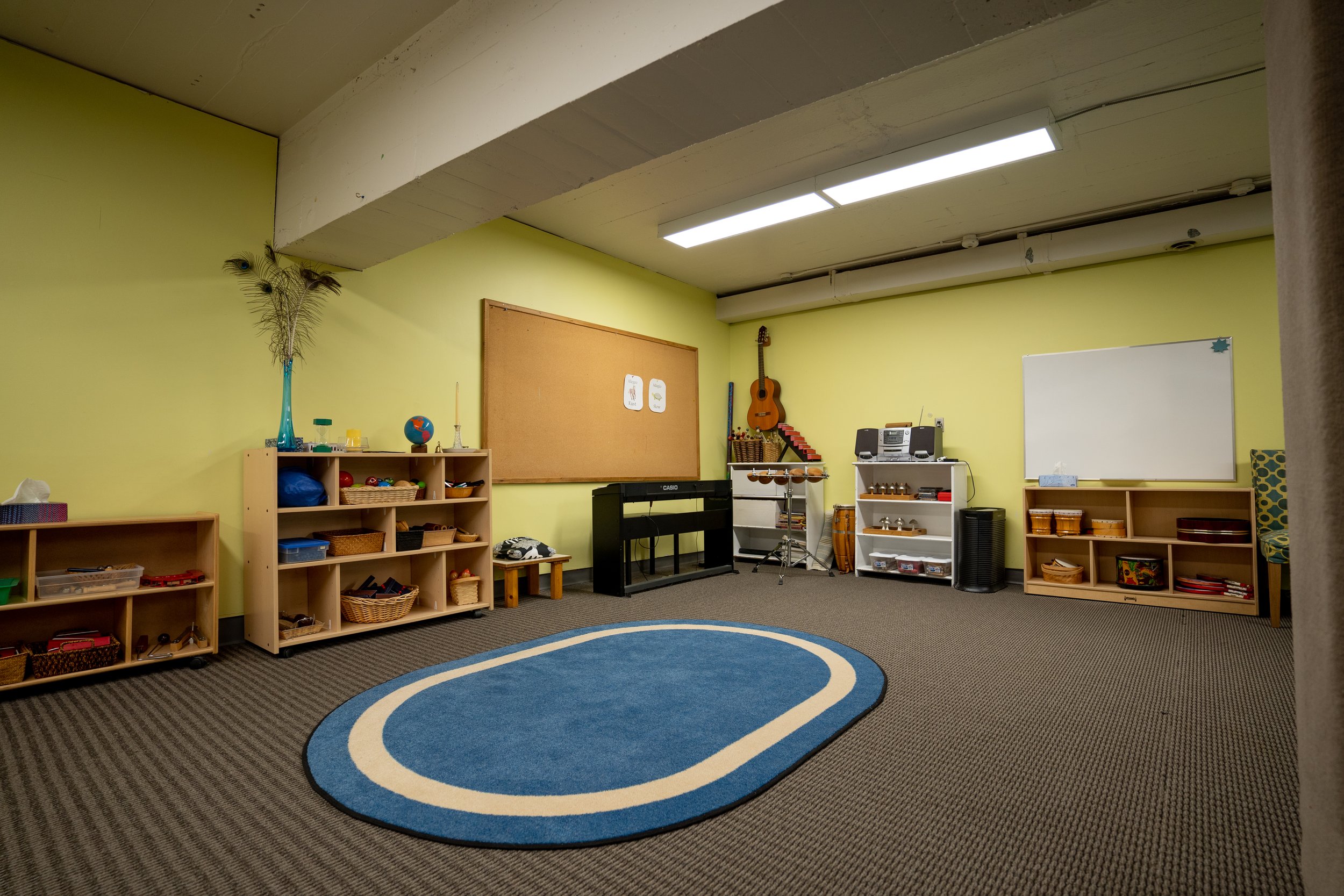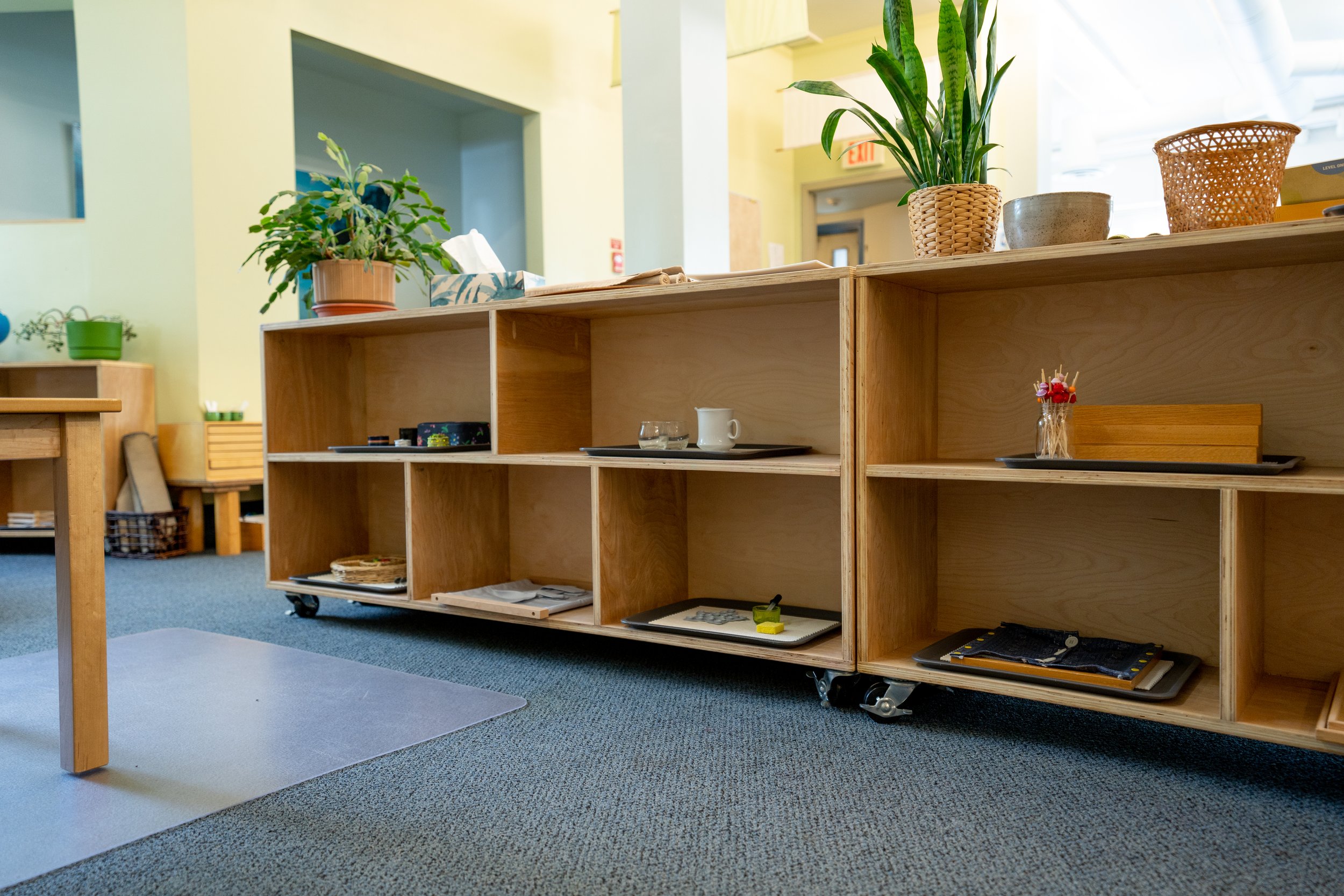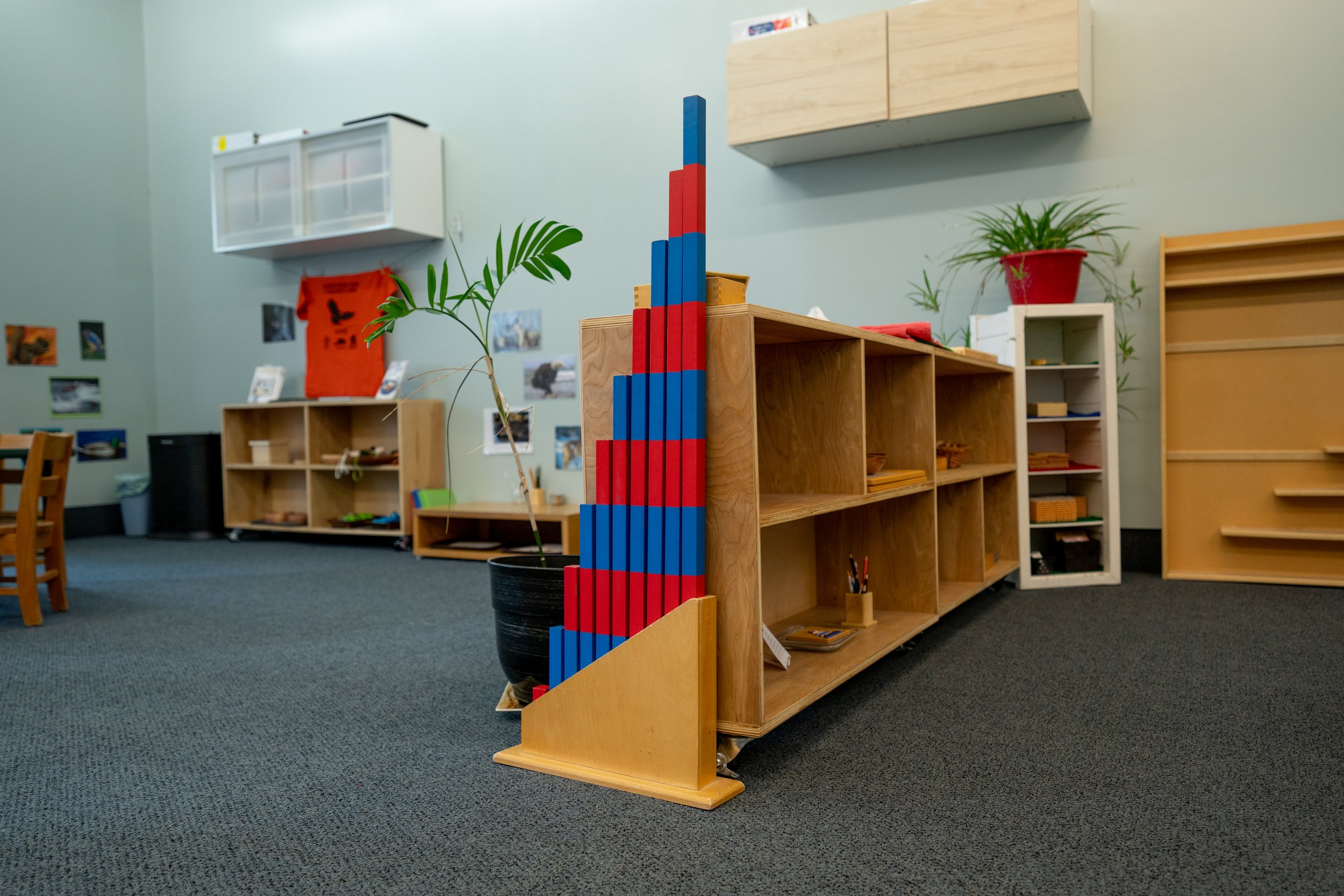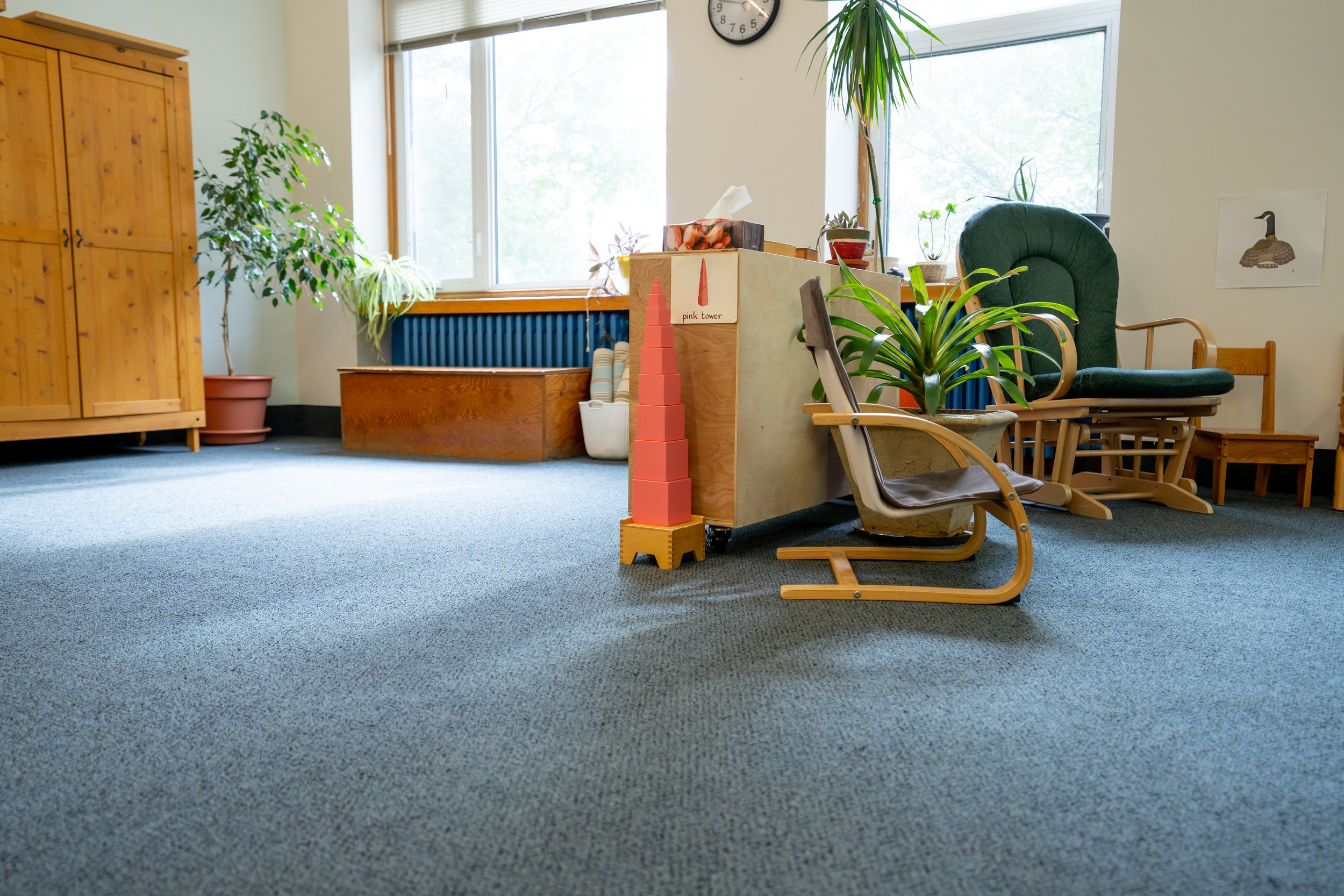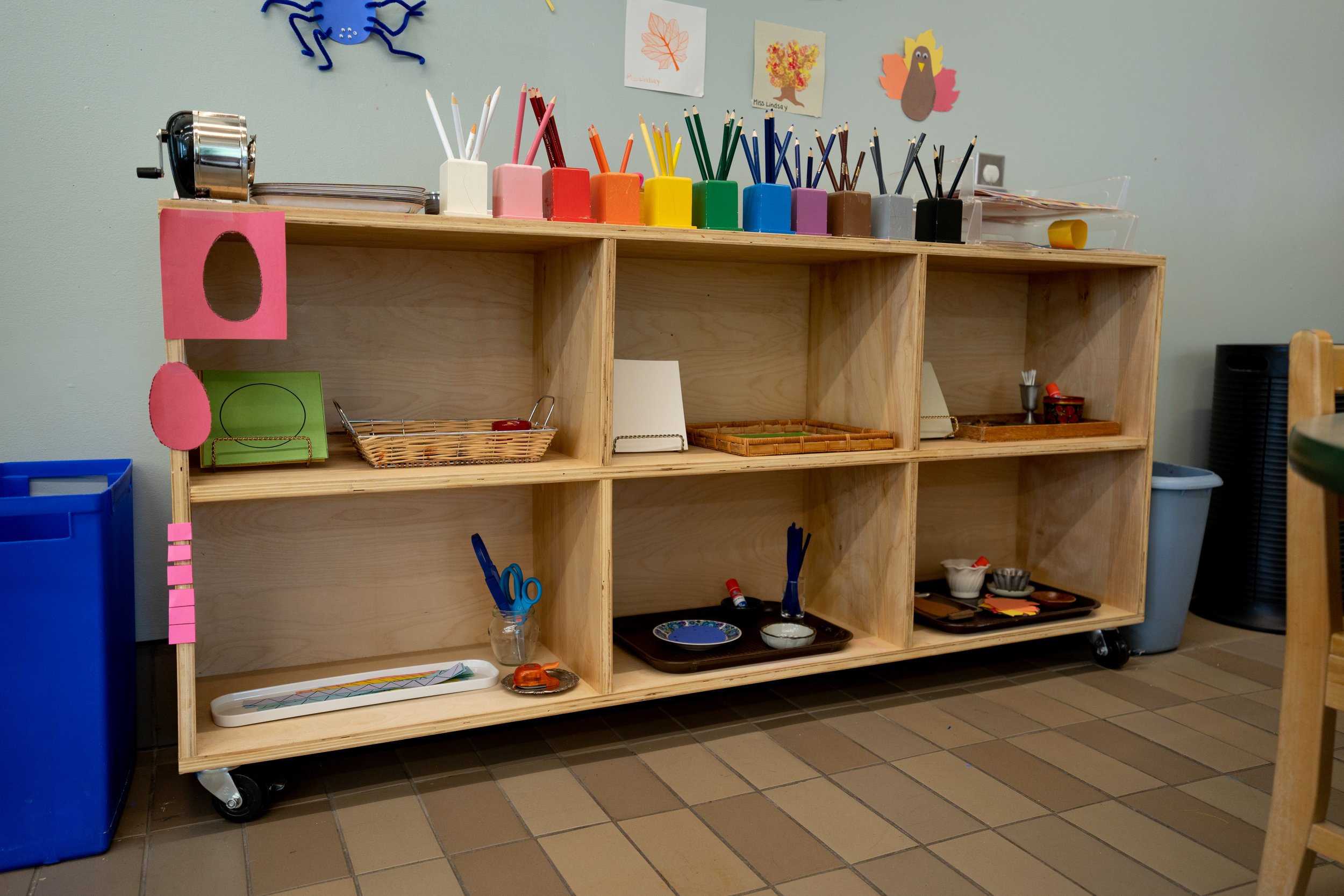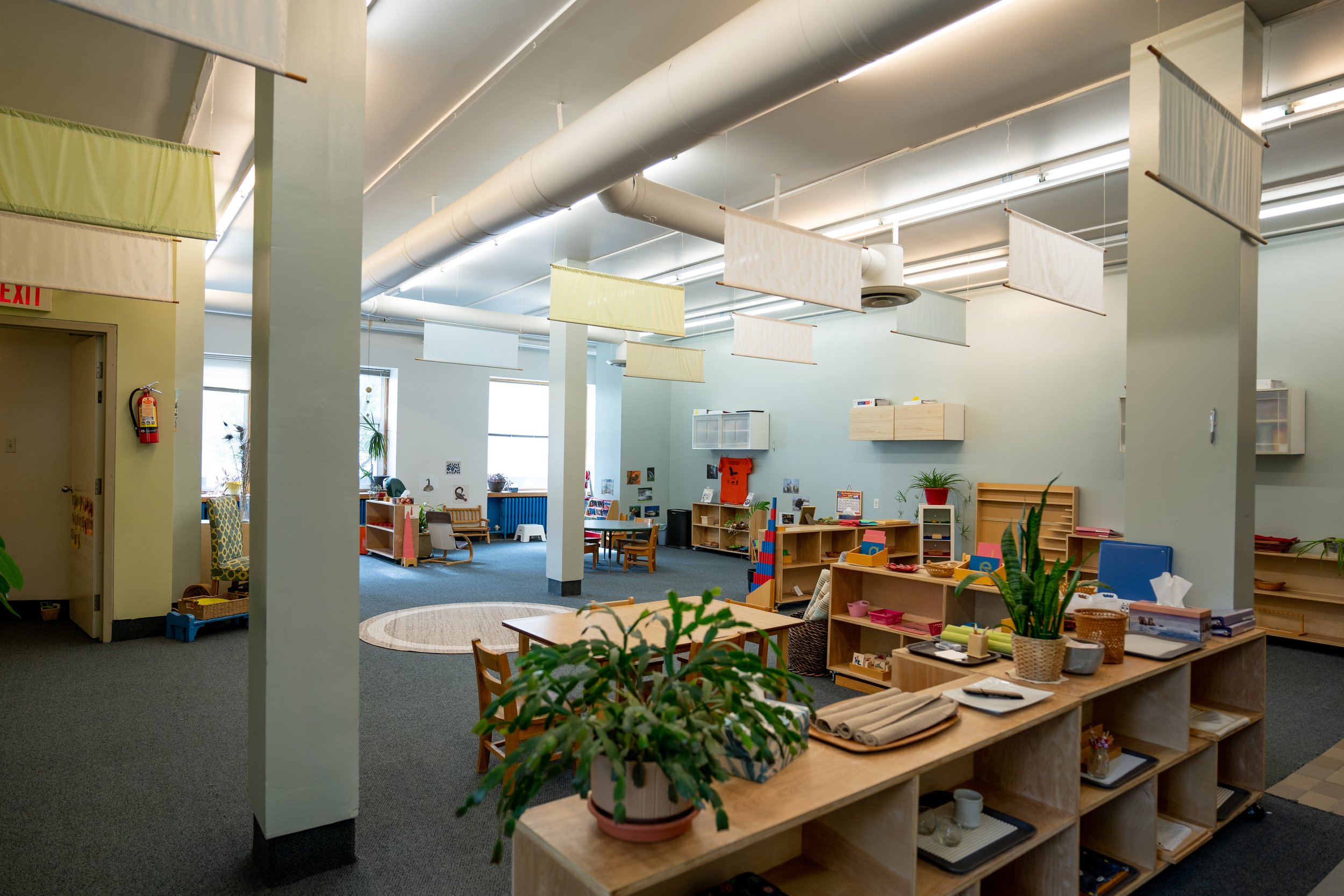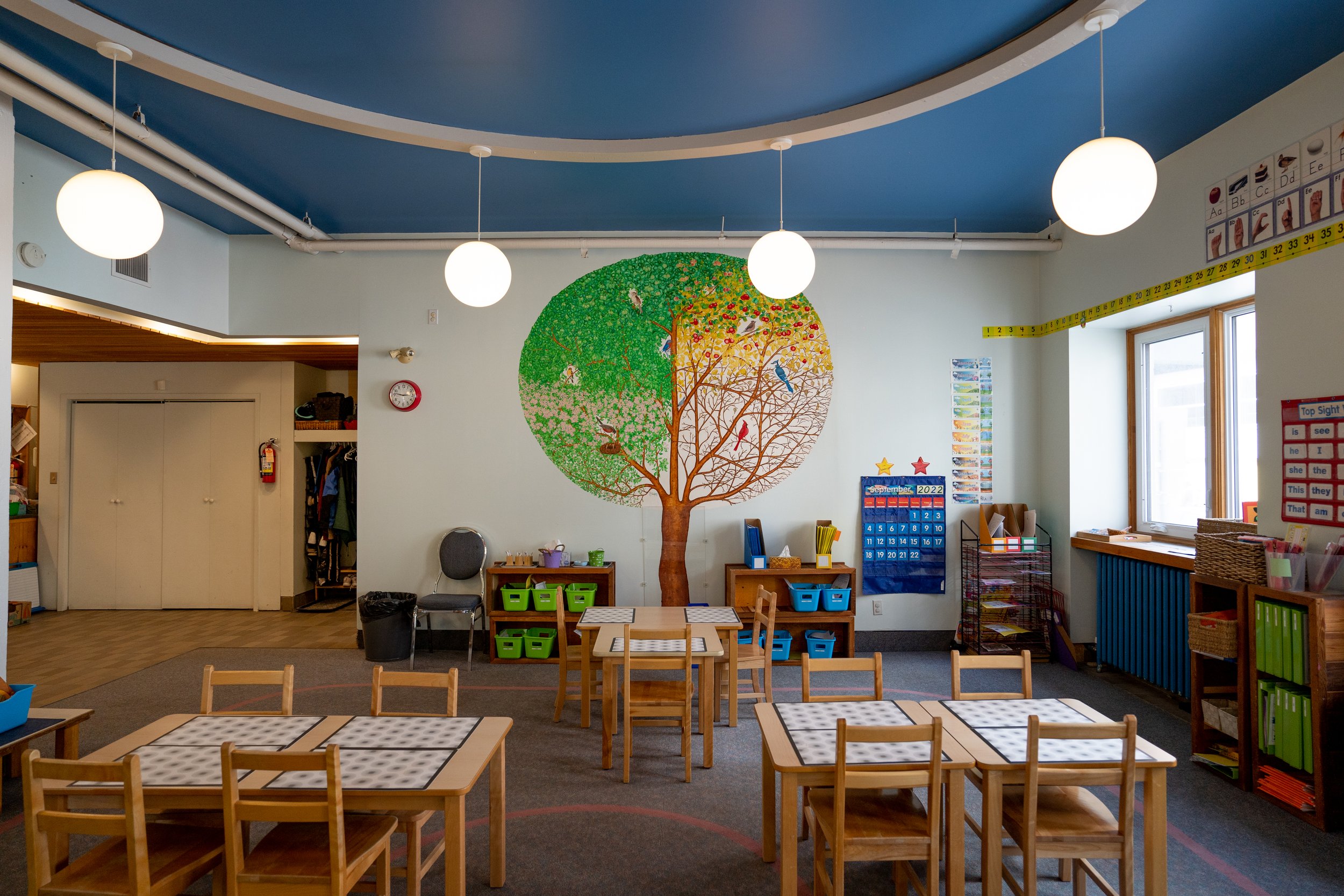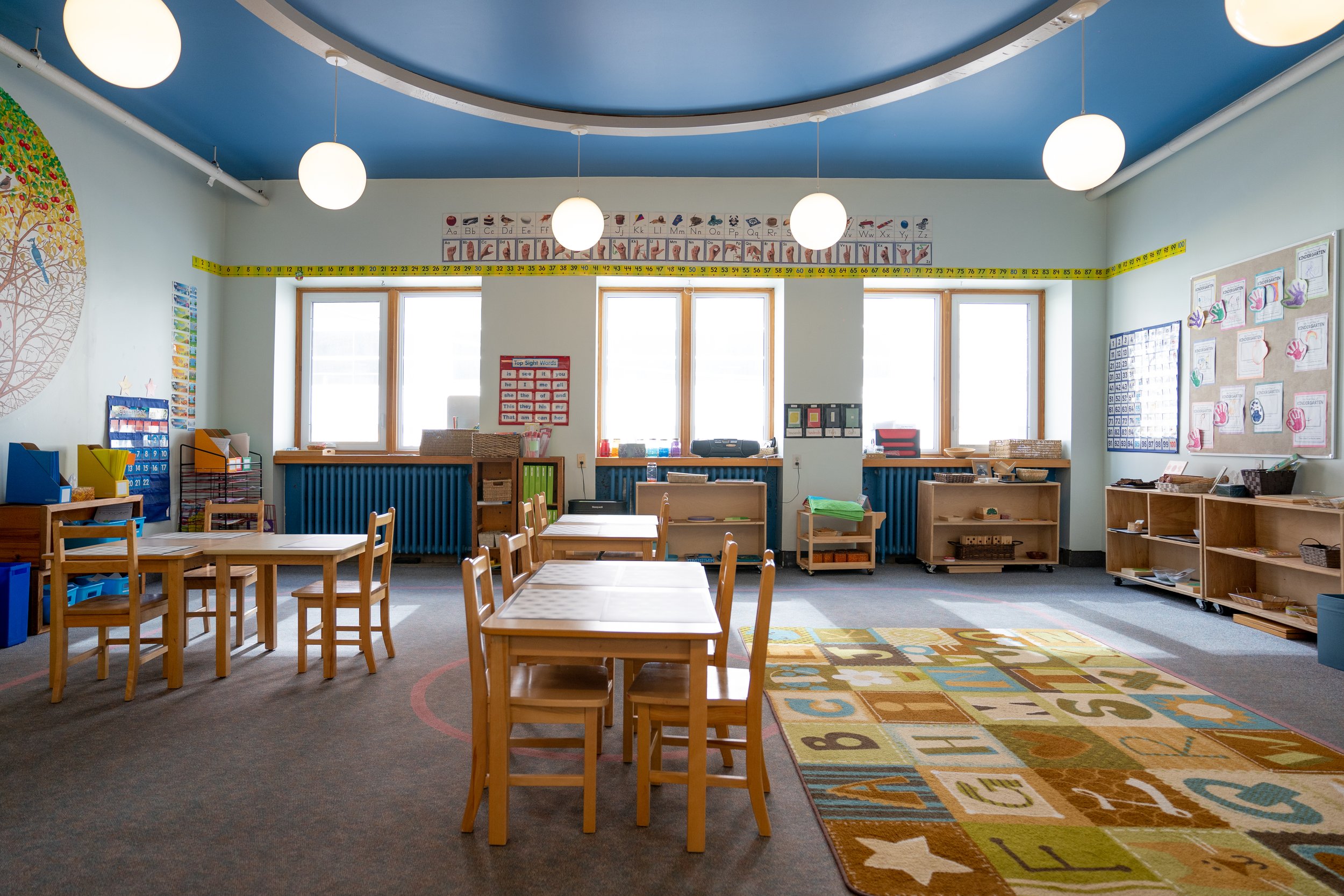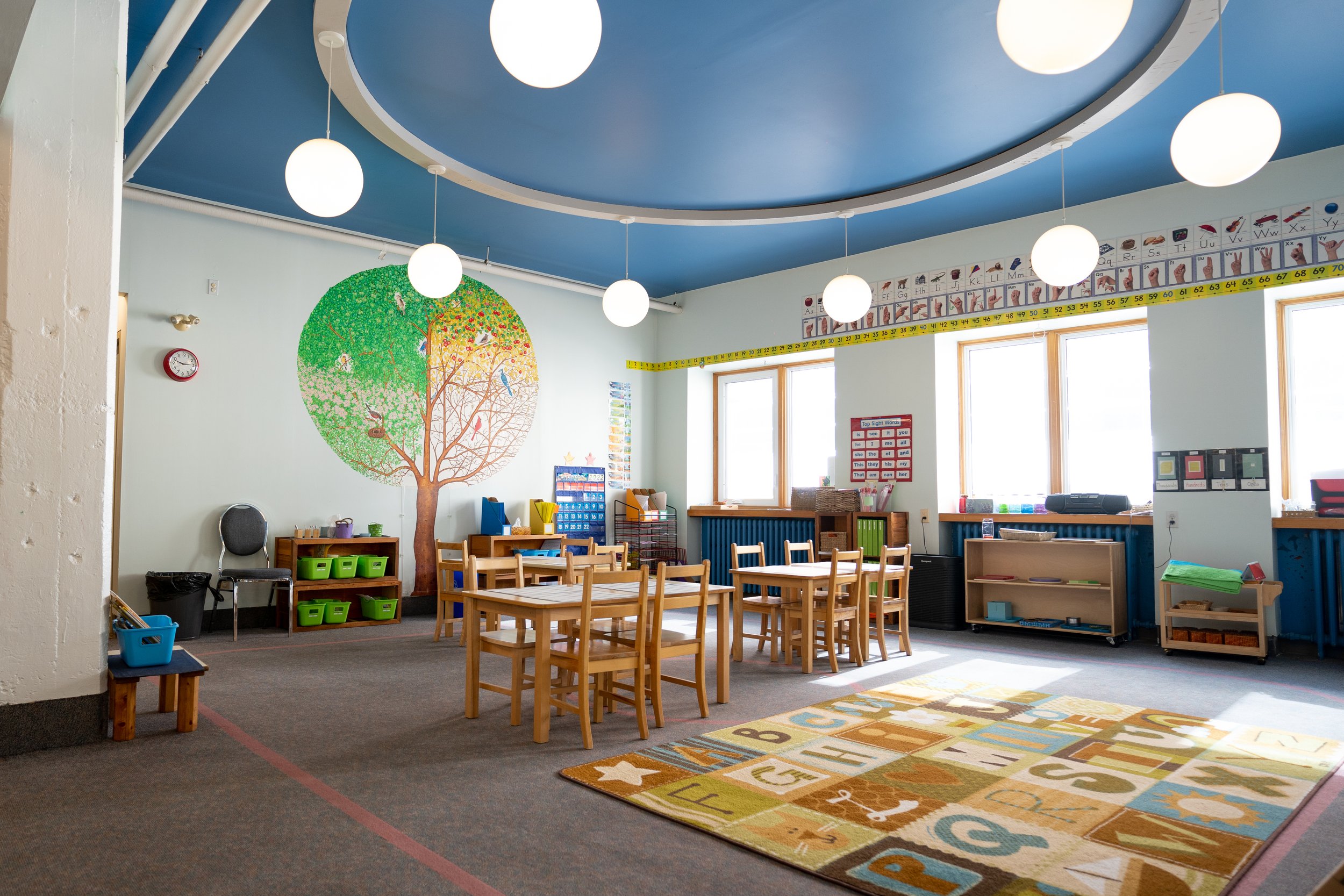
Find out about our School.
Virtual Tour
-
Who We Are
Children’s House offers nursery and kindergarten programs for children 2 1/2 to 6 years old.
Our programs emphasize the development of each child’s physical, intellectual, and social potential, and all are led by a professional staff in well-designed classrooms.
We are an independent, non-profit private school whose operations are overseen by the parent body.
The school is located at 150 Pacific Ave., close to The Manitoba Museum and Sport Manitoba.
Our Mission Statement
The mission of Children’s House is the establishment, maintenance and operation of a child development centre for children based on Montessori principles.
Our Goals
To give children a high quality of early childhood education through a well-qualified staff of teachers using carefully designed programs and learning environments.
To nurture the development of children intellectually, physically, socially, and emotionally.
Our Philosophy
Children have their own natural tools for learning—their curiosity, their senses, their ability to be engaged, and their capacity for absorbing knowledge from their surroundings. We believe that when children use these tools, they can develop their natural desire to learn and become independent and responsible students throughout their lives.
-
A Highly Qualified Teaching Staff
The staff at Children’s House are highly motivated, caring individuals with diverse teaching experience and education. All of our teachers are:
Montessori trained
Certified either as Early Childhood Educators or as professional teachers
Members of the Manitoba Montessori Teachers Association (MMTA), an organization dedicated to the professional development of Montessori educators
Because Montessori education promotes independence and individual learning, the teacher in a Montessori classroom:
Facilitates rather than instructs
Serves as a link between the child and the learning environment
Carefully observes each child and directs the child to new material and enriched activities as he or she makes progress
Is able to discuss with parents the child’s life and progress at school.
-
A Classroom and Pedagogy Based on Montessori Principles
Montessori education respects the natural development of children and their built-in desire to explore, discover, and learn from the world around them.
Children’s individual needs are the main focus of our classrooms and of our teachers’ attention.
Montessori classrooms are especially prepared for the stimulation and comfort of children:
They are full of activities and materials that are inviting and educational for children
Classroom materials are multi-sensory; they encourage children to touch, think, listen, manipulate and experience
Each activity is designed to enhance some aspect of the child’s development, whether it is fine motor skills, eye-hand coordination, or concentration.
Children move about freely, work independently or together, choose activities that interest them, and use materials until they achieve a sense of accomplishment
When they are finished with an activity, they replace the materials neatly before choosing another activity
From this approach to learning, children develop important strengths for lifelong learning:
The freedom to choose inspires independence and self-motivation
The freedom to immerse themselves in activities of their choice fosters competence and inspires confidence
The responsibility for maintaining an orderly environment lays the foundation of respect for each other and for their learning environment
The abundance of choices and materials in our classroom is balanced by its calm atmosphere. The children are engrossed in learning and their concentration and sense of purpose creates an environment in which their energies can be constructively focused and richly rewarded.
-
Programs
A half-day nursery program for children 2-1/2 to 6 years of age
A half-day Kindergarten program certified by the Manitoba Education
Benefits of a Multi-year, Multi-age Program
Our program is designed to benefit all children, whether they are enrolled for only one year or for longer.
Regardless of the age of the child, our nursery program is tailored to meet his or her individual needs
Children who attend for more than one year have time to develop ways of learning that will benefit their future education; as well, our program can accommodate their changing developmental needs as they progress in age and capabilities
In their first years with our school, children learn the concentration, coordination, and learning habits that will help them later as they move on to more complex tasks
Because children of all ages work together in our programs, they develop strong social skills and mutual respect; younger children look to older students for guidance, and older children model good learning attitudes and group behaviour for their younger peers
The Montessori Kindergarten Year
In this year, children apply the learning skills they have acquired as nursery students to more academic topics. Their self-motivation and independence as learners are especially important in the acquisition of language and mathematics
Kindergarten children gain a sense of accomplishment in having attained the highest level in the school. They enjoy an important leadership year, which gives them confidence and a sense of responsibility.
Our Kindergarten program follows the curriculum set out by Manitoba Education and enriches it with Montessori materials and approaches
Options
The nursery program is a half-day program, and families can choose one of the following options:
Five mornings a week (9:00 a.m. to 11:30 a.m.)
Five afternoons a week (1:00 p.m. to 3:30 p.m.)
Three afternoons a week (Mondays, Wednesdays, Fridays)
The Kindergarten program is a half-day program; many parents also enrol Kindergarten students for a half-day of nursery school
Before and After Care/Lunch Program
Additional care is available before the start of the morning session and after the conclusion of the afternoon session for families who are unable to drop off or pick up their children at the regular start and finish times
A lunch program (11:30 a.m. to 1:00 p.m.) is available for children registered for full days
Please see the fees section for information on the cost of these programs.
-
Curriculum
The programs and materials available to all children at the school fall into several areas, all of which give children a foundation for successful learning.
Sensorial activities help children understand the information they receive from their environment so they can appreciate and understand the world around them.
These activities use music, sounds, smells and concrete objects to stimulate and exercise their senses. These activities are also progressive and can be adapted as the child grows in competence.
Practical Life activities, such as watering plants or pouring coloured water, are purposeful, repetitive activities based on familiar household work.
They help children:
Make an easy transition from home to school
Learn to take care of themselves, each other, and their environment
Work in a calm and focused way
Develop fine motor skills, concentration, a sense of order and respect for materials
Feel proud of their accomplishments and their ability to act independently and take responsibility
Language
Language activities and materials:
Focus on developing a concrete awareness of letters and words
Are presented to children individually so that each child encounters them when their interest is greatest
Through this carefully structured approach, children develop the two most important skills for writing:
The ability to relate shapes to their corresponding sounds
The motor skills to reproduce those shapes with a pencil
Reading instruction is self-paced and individual:
Children come to reading out of enjoyment rather than pressure
A special Reading Corner offers children a quiet space where they can read comfortably and for as long as they wish.
Mathematics
As with language learning, the children are introduced to mathematics when they show interest and readiness for it. Instruction is self-paced and individual.
Children learn mathematical concepts by:
Working first with concrete materials and activities
Progressing to more abstract activities
Children can use a wide variety of materials:
Number rods
Golden Beads
Addition, subtraction, multiplication, and division boards
As they progress, the teachers will show them other, and more challenging, ways to use the materials.
Culture and Science
Activities in our culture and science curriculum help children develop their understanding of both the natural world and the social world around them.
This approach:
Helps children understand their place in the world
Allows them to extend the responsibility and respect they learn in other classroom activities to the people and places in their lives.
Children’s House teachers create special learning projects throughout the year to introduce children to:
Natural sciences, including botany, zoology, and astronomy
History and geography
Arts and crafts
Each school year is devoted to the study of a particular culture, so children can learn about the music, language, customs, and cuisine that distinguish that culture.
-
Gross Motor
We have a spacious Gross Motor Area in our school and a well-designed outdoor classroom that children use every day. In both areas, children are encouraged to participate in active play and to develop a positive attitude towards personal health and fitness.
Some of the areas included in the gross motor program are:
Physical fitness, with a focus on participation and enthusiasm
The development of movement skills
An understanding of diet and nutrition, and of safety
The social skills that come from team work and sportsmanship.
Our Kindergarten program includes formal gym lessons following Manitoba Education curriculum guidelines.
Music
Our music program is based on the Orff philosophy, which emphasizes an experiential and movement-based approach.
Music lessons are held weekly in same-age groups, and children also participate in musical activities during daily circle time.
The Kindergarten music lessons follow Manitoba Education Guidelines.
In our music lessons, children:
Learn the fundamentals of rhythm, melody, harmony, timbre, and form
Experience a wide range of music, from simple folk melodies to classical works
Make music by singing, dancing, and playing recorders and percussion instruments
Improvise to create confidence, independence, and enjoyment.
Outdoor Classroom
Our outdoor classroom was completed in 2006 as a celebration of our school’s 40th anniversary.
This space features a variety of landscapes to enhance children’s learning experiences:
A hill with a tunnel running through it, a slide, a stump walk, and an open grassy area for running and playing games
Pathways of different materials connecting all -parts of the landscape
A wealth of plants—trees, bushes, vines, flowers, herbs, and vegetables—that expose the children to a rich variety of natural sounds and textures.
The outdoor classroom gives children a space for independent, imaginative, and rewarding activities—they run and play, they tend gardens, they explore quiet areas, and they investigate plants and insects.
-
Children’s House receives financial support from Manitoba Child Care and Manitoba Education and operates as a non-profit organization.
As a result, we have a reasonable fee structure that makes our programs financially accessible.
Parents who need financial assistance can apply to Manitoba Child Care for subsidy assistance and to Children’s House for bursary support.
Our annual program fees are:
$1,165.00 for our half-day partial-week program (M/W/F afternoons only)
$1,935.00 for our half-day full-week program (five days)
$1,935.00 for our half-day Kindergarten program
$3,870.00 for our full-day Kindergarten program + $1,080.00 for the lunch program
The lunch program annual fee is $1,080.00
Early Care: 8:00 – 9:00 a.m. $720.00 annually; 8:15 – 9:00 a.m. $540.00 annually; 8:30 – 9:00 a.m. $360.00
Late Care: 3:30 – 4:00 p.m. $360.00 annually
All families are also required to pay an annual registration fee of $100.00 as well as a snack fee of $100.00 to offset the daily snack provided per child.
Fees can be paid monthly, annually, or in three installments throughout the year.
